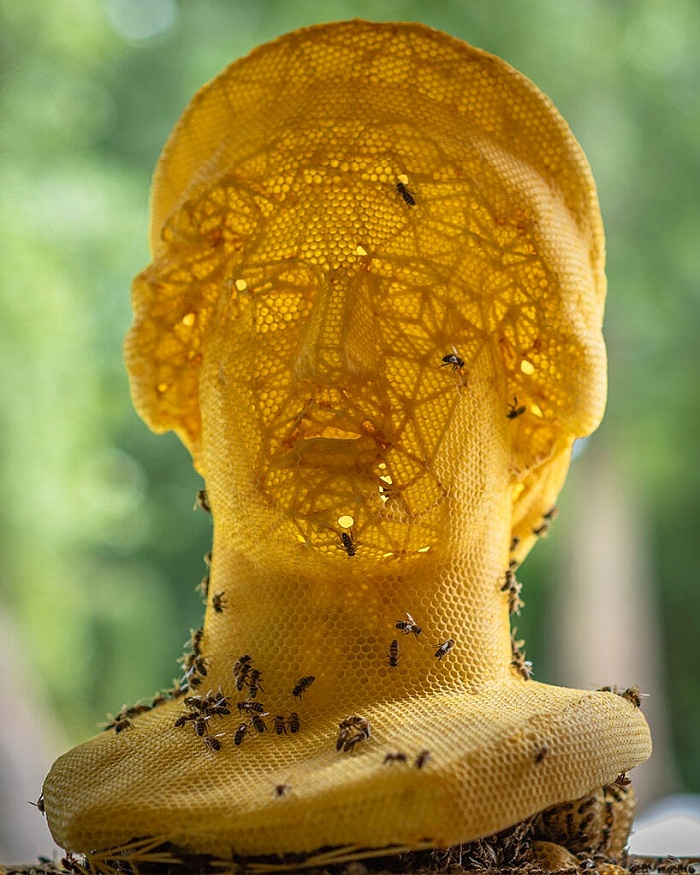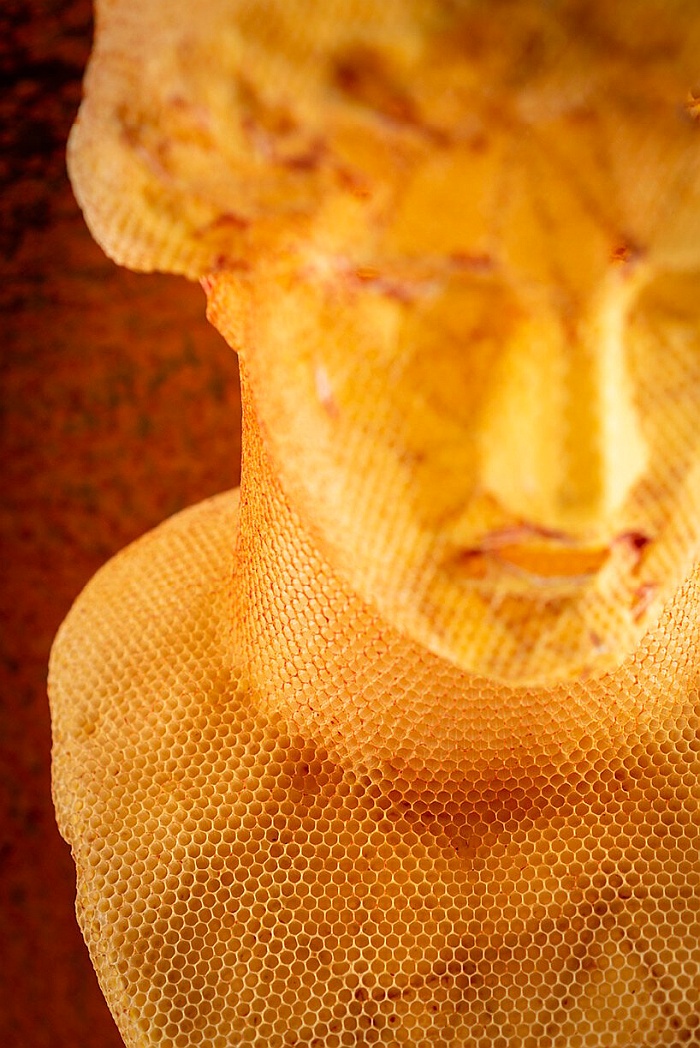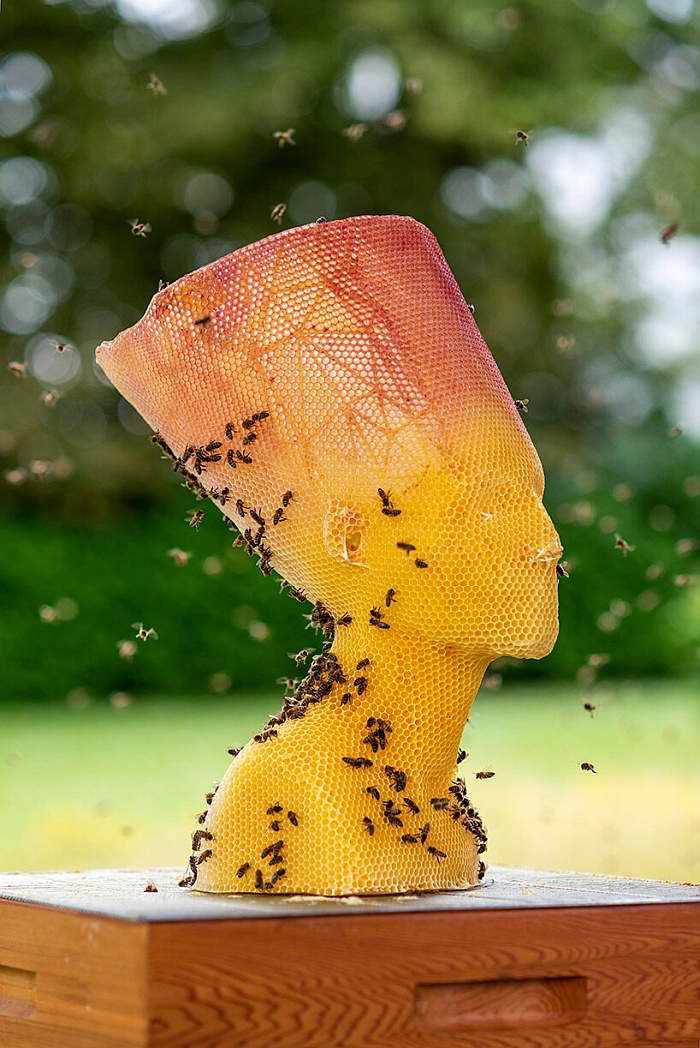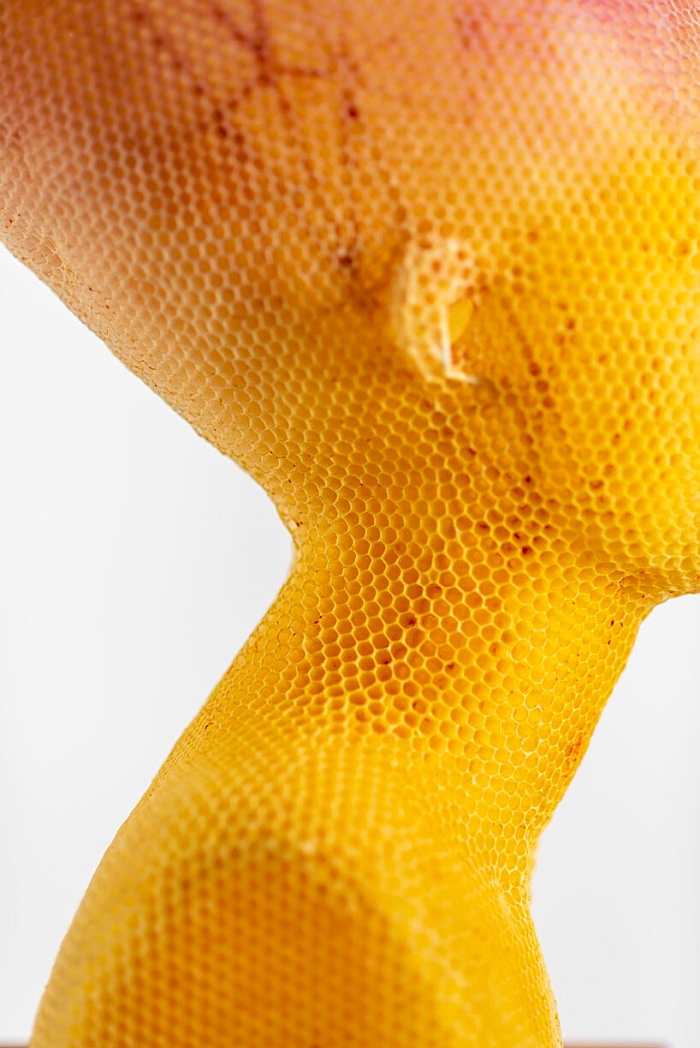Persevering with his exploration of magnificence and intelligence in nature, Tomáš Libertíny has added two extra pure beeswax sculptures to his expansive assortment. Drawing on his private struggles, the Rotterdam-based artist has created a bust of Hera, spouse of Zeus, and a second iteration of the bust of Nefertiti, Queen of Egypt, addressing themes of despair and anxiousness. Each works had been accomplished with the assistance of 1000’s of bees stored at a newly established bee farm in Rotterdam.
Along with his present bee farm in Slovakia (began in 2020), Tomáš Libertíny has launched a brand new bee farm (as of 2021) referred to as Lakeside Beefarm in Rotterdam in collaboration with Lakeside Capital Companions. The brand new bee farm is devoted to producing the Slovakian-born artist’s work and protecting the bees in essentially the most environmentally pleasant approach doable. On this new farm, a brand new particular breed of queens has been launched. The colonies of the queens have a pure intuition to eliminate varroa mites themselves. Which means no chemical substances are utilized in beekeeping to take care of a wholesome colony.


Hera, goddess of marriage and protector of girls in childbirth: The Hera bust was made by bees from pure beeswax over a interval of an entire season and strongly resembles the well-known Hera Barberini fabricated from marble. In historical Greek faith, Hera, spouse of Zeus, is the goddess of marriage, girls, and household in addition to the protector of girls in childbirth.‘Hera is a deeply private and biographical work,’ shares Tomáš Libertíny. The artist had to deal with a heavy loss brought on by the expertise of abortion and the ache it precipitated for each companions.


Nefertiti as a logo of fragility and energy: The battle in opposition to despair and anxiousness has at all times been a relentless private wrestle of Tomáš Libertíny. Being susceptible and seeing this as a energy and never a weak point turned the primary theme in his artwork since 2005 and his work with honeybees. The honeycomb sculptures are by definition extraordinarily fragile artworks, however beeswax can be one of the vital sturdy pure supplies and can final 1000’s of years.


Two years after the primary model of the Nefertiti bust, the artist has returned with a second iteration referred to as ‘Eternity’. The experiment on this new piece was to introduce a pure pink pigment (as present in prehistoric cave work) right into a beehive in order that the 60,000 bees may naturally incorporate the pink pigment into the sculpture. The allusion to earth, flesh, or blood of the crown is palpable. The bust relies on the 3D mannequin of the unique portrait of the Egyptian queen (made in 1345 BC and now on show on the Neues Museum in Berlin). It’s a nod to the energy and timelessness of ‘Mom Nature’ in addition to her historical character as a strong lady ruling in opposition to all odds. Queen Nefertiti and her husband Pharaoh Akhenaten had been well-known for abandoning the polytheism of historical Egypt and introducing the solar god Aten, albeit unsuccessfully. Eternity finally serves as a logo of the duality of life and nature, fragile but robust.




Supply: Inside Zine

